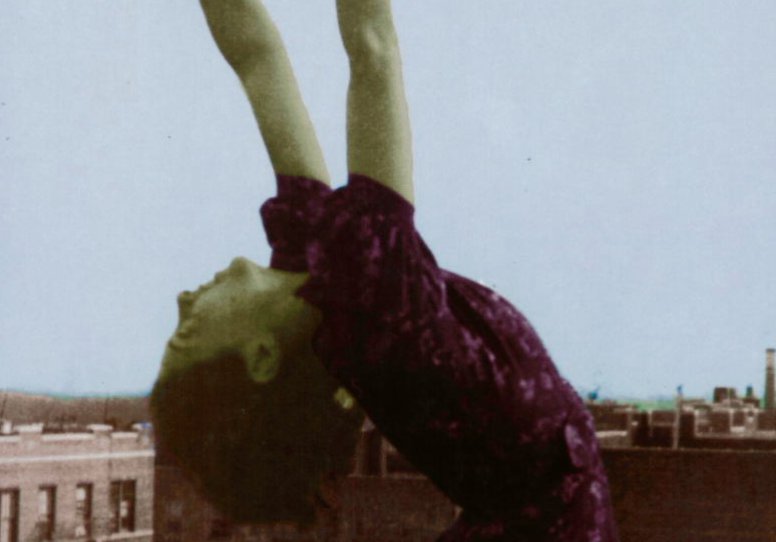The War At Home is fought in a series of small Bronx apartments in which Lucy and Nick Lehman grow up.
"We were so lucky," Lucy's narrative begins, "not having a real mother. We meant a mother like our friends had." Wherein we meet the irresistible Tippy, a dance teacher and dream mom who allows her kids to drink from park fountains, skip or "invent" supper, and wash dishes, along with themselves, in the bathtub. Nora Eisenberg's first novel begins with this Bronx childhood idyll, charmed by a maternal "elf."
But before this fairytale lulls us too far into nostalgic reverie, Lucy's fear intrudes: "Let him not come home." Enter Ralph Lehman, the family's violent, damaged patriarch, who returns from World War II like "chocolate pudding" flung against Tippy's "sky-blue ceiling." With this single gorgeous image, Eisenberg establishes the tone and theme of the novel. The post-war New York she goes on to depict is determined yet resigned, naïve yet corrupt, shell-shocked yet optimistic.
For those who never tire of revisiting the bygone days of outer-borough bliss, Eisenberg faithfully catalogs the details. Along with the egg creams and charlotte russes are the requisite luncheonettes and kitchenettes, the large swaths of undeveloped open space, even an uncle named Pinky. But in the author's capable hands, these sweet trappings become a sinister backdrop to the Lehmans' intensifying domestic conflict. Many of the elements that led to the world war just concluded—shifting alliances, surprise bloodshed, economic panic—are echoed inThe War At Home.
Ralph Lehman abuses his family physically, psychologically, and even ideologically:
Drawing on the type of political rhetoric that may well have seen him through great battles, he'd yell how he'd defeated the Nazi monster only to be rewarded with us—"midget lumpens," "declassed debris of late-stage capitalism," "little bourgeois shits."
Lehman is neither a sentimental hero à la The Best Years of Our Lives,nor a stock wacko veteran. His unpredictable moods keep his family (and the reader) in a constant state of high alert. At one particularly stressful point, Lucy suspects that her father has even murdered one of their neighbors. Still, she desperately tries to rationalize, justify, even normalize his (and later her mother's) terrifying behavior. Nothing can stop her from craving his love. This response may be psychologically accurate, but Lucy's thoughts about the situation seem too analytical and self-aware for a child. By consequence, the narrative voice here sounds overblown:
And as my father stared and brooded, slapped and screamed, I'd sometimes convince myself it was because he cared so much about us. And some days, when my dread was so thick that it was hard to breathe, I'd feel only gratitude to him, for preparing me for all the battles awaiting me. Or at least trying.
Such clunky passages are rare, however. Lucy's sense of impending danger becomes more direct and vivid as the novel progresses. The subjects of her fears escalate from a reclusive neighbor and his "haunted house," to a gang of boys and their rumored rituals, to the Russians and their bombs. Imagining her braver, rebellious brother Nick leaving home is most frightening of all. Of course, it's Ralph who eventually abandons the family, for a woman who calls herself "Liberty." When this happens, Lucy is forced to finally pull herself together. Her mother, it appears, is falling apart.
Raving, starving herself, addicted to Seconal and Dexedrine, Tippy makes a dramatic transformation from beautiful, fun-loving sprite to mean, jerky, skeleton who depends on Lucy as her determined but ill-equipped caretaker. Here the ways in which kids cope with family strife are more credibly depicted. When his mother, on a new medication, starts speaking Yiddish, Nick responds with his own Yinglish patois: "Lifen willen neveren turnen backen to shiten." When the apartment becomes unbearable, Lucy and Nick find refuge in the neighboring gardens and parks. When funds become tight, they form a musical group called "The Lucky Kids" and play for cash. At the end of the book, after a brief parental reunion fails, they decide to run away, and tell strangers that their parents succumbed to gangrene after passing out political leaflets in the cold.
Nora Eisenberg is the author of several influential books on the craft of writing, and her methodological principles are manifest in this novel's accessibility, brevity, and humor. But there is nothing simple about Lucy's story or the era in which it is set. Eisenberg deftly charts both the psychic damage and passionate idealism that the war left in its wake. However misguided, Ralph's progressive politics are rooted in a firm belief that a better world is possible.
From her father and his contemporaries, Lucy inherits a culture that is both desperately brutal and impossibly naïve. Following years filled with violence and drug abuse, the teenage Lucy can still believe she is pregnant after being raped in the mouth. When the children adopt a lovable stray mutt, they name it after their grandmother's sister, who has died in a concentration camp, because "Nan said, she had the sweetest eyes in the world before she died in the oven." Later, Lucy finds a letter from the same relative, in which she writes "I have hope for the future…." (Throughout, Eisenberg respects the power of these images and lets the Holocaust cast its shadow without explicit reference.) In such renderings of a specific time and place—the nearly unrecognizable Bronx of the 1950s—Eisenberg truly shines.
Published by the small and noteworthy Leapfrog Press, The War At Home is billed as a "memoir-novel," a new and, to my mind, silly categorization. How many coming-of-age novels are not, in part, autobiographical? What purpose does this double designation serve other than tease the reader into futile speculation about which bits did or did not actually occur? Eisenberg earns our trust and sympathy by telling the truth. Trying to seduce us with the grimy facts can only detract from the unique artifact that is The War At Home.







